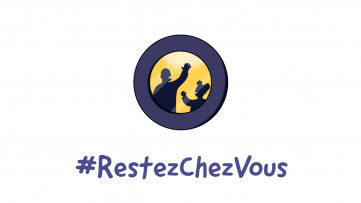


We tell you everything
On February 26, the Senate will again examine the bill to fight against hateful content on the Internet, before a final reading in the National Assembly. In this perspective, we wish to recall several principles to which Qwant and all our users are definitively attached and clarify our position on this ambitious reform whose consequences must be well measured.
As you have seen, we very early on expressed our support in principle for stepping up the fight against hateful content on the Internet, which must be carried out in a way that respects fundamental rights and freedoms. We also recalled the need to guarantee French and European technological independence in the process of regulating content on the Internet. Finally, our job being to facilitate access to all types of content available on the Internet, we have focused on finding a balanced system allowing a better responsiveness to the most serious and manifestly illegal comments, which should not be promoted through our search results.
That is why, at every opportunity we were given during the preparatory work for the bill, we reminded all parliamentarians of what can and cannot be done to combat online hate while avoiding the harmful consequences that an unbalanced system would have on freedom of expression and access to information.
A (im)possible balancing act?
After months of meetings and hearings, we will continue to work and explain our position. Indeed, Article 1 of the draft law poses major difficulties of legal uncertainty and concrete application, by obliging platforms and search engines to remove within 24 hours maximum after notification a whole series of categories of hate and pornographic content, under penalty of a fine of 250,000 euros.
Placing us “between a rock and a hard place”, as stated by MP Laëtitia AVIA, author of the bill of the law, the text requires that we be able to judge the legality or illegality of the remarks notified to us, without ever falling into the excess of censorship punishable by the administrative authority, or especially in the faulty abstention punished criminally. We will have 24 hours to act and not a minute more, regardless of the day of the week and the volume of notifications received. Unlike other categories of content, whose criminal classification cannot vary according to a context or interpretation, determining the “manifestly unlawful” nature of speech that falls within the scope of either freedom of expression or its abuse, requires a detailed and detailed analysis that no automation can replace.
It will be necessary to implement human resources whose costs are inaccessible and unpredictable, or to renounce a real protection of your rights, privileging the risk of an administrative formal notice to that of a heavy criminal sanction. Smaller players with limited resources cannot deploy sophisticated means based on artificial intelligence (whose ability to preserve rights remains to be demonstrated anyway), and there is no question for French and European platforms to be vassalized via the tools of the major platforms.
A risk of unconstitutionality
In support of our position, we also recall that in the commentary of its decision n ° 2004-496 DC of June 10, 2004 on the Law for confidence in the digital economy (LCEN), the Constitutional Council had indicated that ” The legislator may not impose obligations that are impossible to meet or that compliance with which would be so difficult or so onerous that it would call into question the very existence of an activity, especially if it is placed within the scope of the exercise of a public freedom. ». He already noted that “the denunciations of which a host will be the recipient can be numerous and confusing, malicious or self-serving” and that ” the characterization of an illicit message can be delicate, even for a lawyer “. If he had validated the device created by the LCEN, it is because ” no new case of civil or criminal liability ” against hosts was created by law. However, the fine of 250,000 euros in the event of failure to comply with the obligation to withdraw within 24 hours is indeed a new criminal responsibility.
For all these reasons, we are currently and once again calling on the legislator to be fully aware of the consequences and the risk of unconstitutionality of Article 1 of the draft law, and to waive the criminal obligation to withdraw within 24 hours. This withdrawal will not deprive the platforms of the obligation to strengthen their resources and responsiveness, under the control of the administrative authority, but will ensure, we are convinced, a better balance to the whole system.